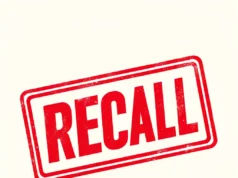
Product recalls can often send waves of distress through the consumer landscape. As a firm with a keen understanding of the market, we delve into this complex relationship between consumers and product recalls, examining the emotional effects that are sometimes overlooked.
The Onset of Trust Shattering
Recalls can shatter the consumer’s trust in a product or brand. We understand that trust, once lost, can be challenging to regain. The emotional fall-out can range from frustration and disappointment to deep-seated anger, primarily when the product involved is of personal significance.
Fear and Anxiety: The Twin Troubles
When a product is recalled, especially if it pertains to health or safety, it can instill fear and anxiety. Consumers may worry about potential harm they’ve already been exposed to, or the risks they face due to the recalled product. These anxieties can persist, affecting their buying decisions long after the recall event.
The Emotional Cost of Inconvenience
While it’s evident that product recalls can pose physical harm or financial loss, what’s often overlooked is the inconvenience they cause. Having to return a product, seek a refund, or find a replacement can lead to frustration, adding to the emotional burden borne by consumers.
The Resounding Impact on Brand Loyalty
Product recalls can significantly affect brand loyalty. Even the most dedicated consumers may think twice about their allegiance when faced with a recall. This disillusionment can be difficult to reverse, impacting not only individual consumer choices but also shaping the overall perception of the brand.
Restoring Consumer Confidence: A Sisyphean Task?
The road to restoring consumer confidence post-recall is fraught with obstacles. It requires more than mere words; it calls for action that speaks volumes about the brand’s commitment to quality and safety. This task can be mammoth but is not insurmountable, with the right approach.
The Role of Transparent Communication in Alleviating Emotional Distress
Clear, open, and timely communication can alleviate much of the emotional distress consumers experience during a product recall. By providing detailed information about the recall and the measures taken to rectify the situation, brands can begin to mend the emotional bonds with their consumers.
Consumer Empathy: A Tool for Brand Recovery
Understanding and acknowledging the emotional impact of product recalls on consumers can be a powerful tool in a brand’s recovery strategy. By expressing empathy and compassion, brands can show their consumers that they’re more than just profit engines, reinforcing the human element in business.
In conclusion, the emotional impact of product recalls on consumers runs deep and wide. It extends beyond the immediate reaction to include long-term effects on trust, fear, inconvenience, brand loyalty, and the overall perception of a brand. To navigate this challenging landscape, brands must harness the power of transparent communication, empathy, and committed action to mend the frayed emotional bonds with their consumers.







